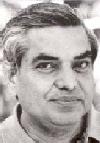If you look everywhere around you, things are happening. Why do you feel you have to do? Which doesn’t mean you don’t have to do. It rather means: Why this need to do? Why not just allow it to be alone, like your breathing?
So then if there is no need to do, then you are not afraid of the unfamiliar. You don’t have to do anything. You have to perhaps to be tuned – in tune to what is happening.
So this need to do, is this resistance? If you think that you have to breathe would that obstruct your natural breathing? Your breathing happens automatically. If you try to breath, would you be disturbing your natural flow, rhythm of breathing?
So rather than the need to do which is resistance, is it more necessary to be in tune with what is – with what is, i.e., your thoughts, your feelings, your sensations, events in the world – to be aware of these without the need to do. To be aware of them, to be in tune with them, the changes each moment to watch them. To be in tune means to watch them, not to obstruct them, not to think you have to do.
So watch what is happening in your mind and the world. To watch neutrally as witness, without judgment, without prejudice. Would this put you into the flow. And in this flow would actions happen through you just like your breathing, as natural as your breathing? So your actions in the world whether it is concerning your profession, your relationships, (or) any other (such as) sports, hobbies or activities. Whatever your actions (they) would be as natural as your breathing – no effort, action but no effort, effortless action.
So is this what we are practicing in silence? To watch your thoughts, not to be led by them. If you are led by them, then you are not watching them. To watch your feelings and imagination, to watch your sensations, not to be pulled away by these. Is this what we are practicing in silence?
For if you practice this, if you watch your thoughts, they quieten down – your feelings and your imagination too. All become quiet because you are not nourishing them with your attention. So they become quiet and you experience silence, the unfamiliar, the unknown because there are no patterns here; there is no past, there is no conditioning. It is unfamiliar. It is amazing but comforting, a feeling of being home of being held, of being protected even though unfamiliar. So you become comfortable with unfamiliarity, comfortable with the unknown. In that state you have conquered fear.
Is it just that? Or is there greater depth? Is there deeper understanding in the silence? How deep can the understanding be? And how does it happen? How can there be an understanding in silence when there is not even a thought? Is this the understanding of that which is beyond thought – beyond feeling, beyond perception and beyond sensation, beyond the world – an understanding beyond the world, beyond mind and beyond world?
How can this be in silence? Let’s go into this. Remember you are inquiring, you are discovering. The words are not important at all. Your discovering the truth of what is being spoken. Without your discovering the truth, the words have no meaning. So let’s go into this. How can there be in silence a deep understanding beyond world and beyond mind?

